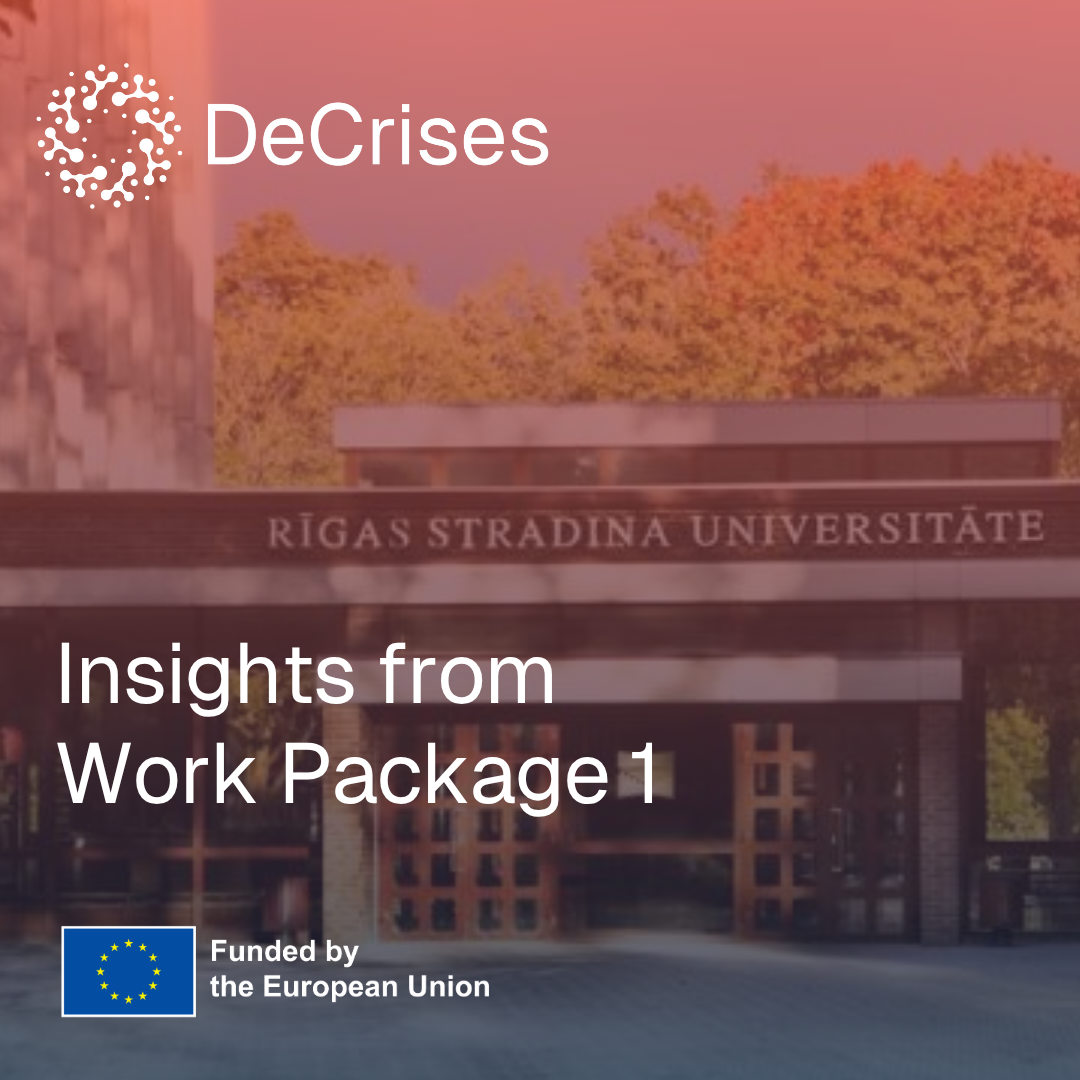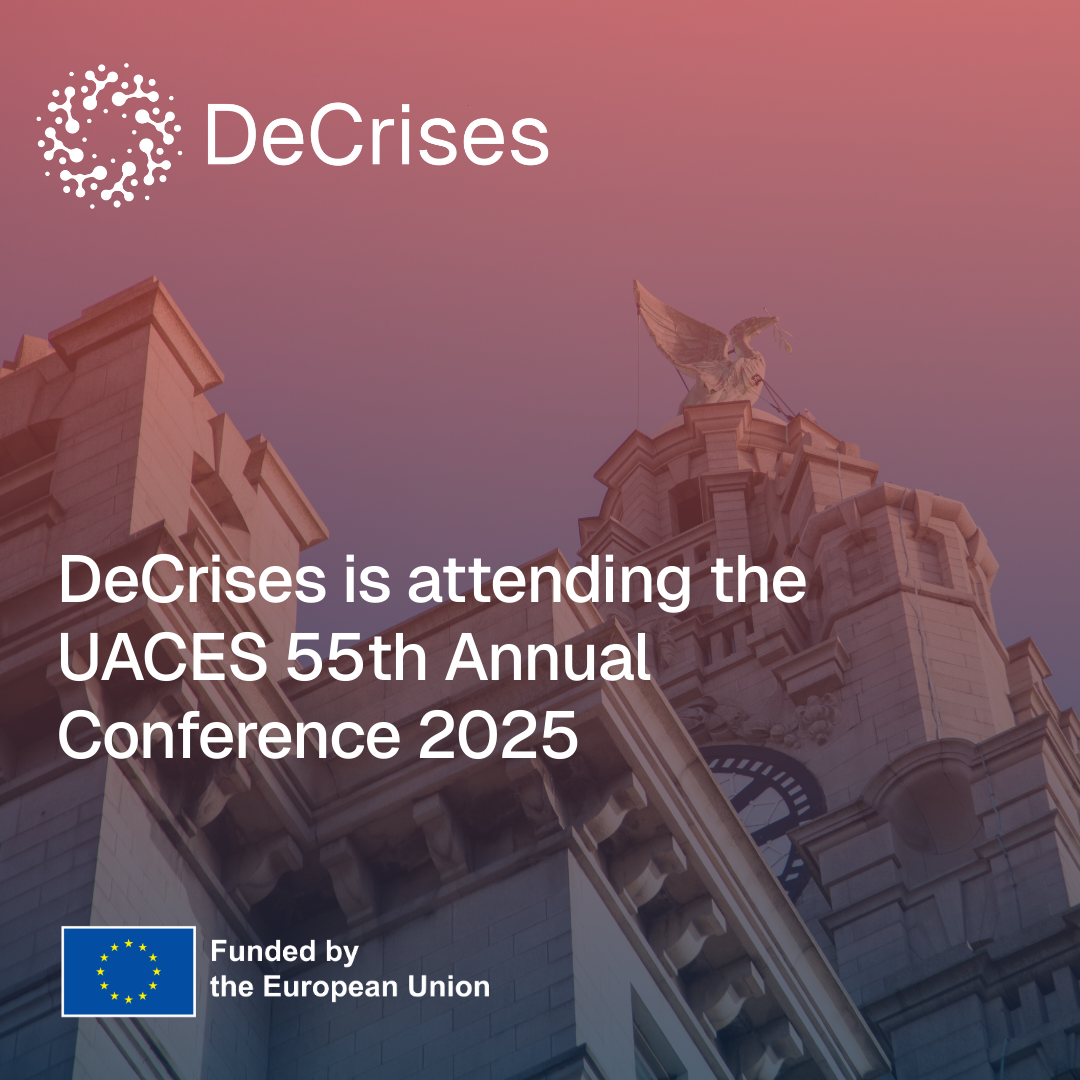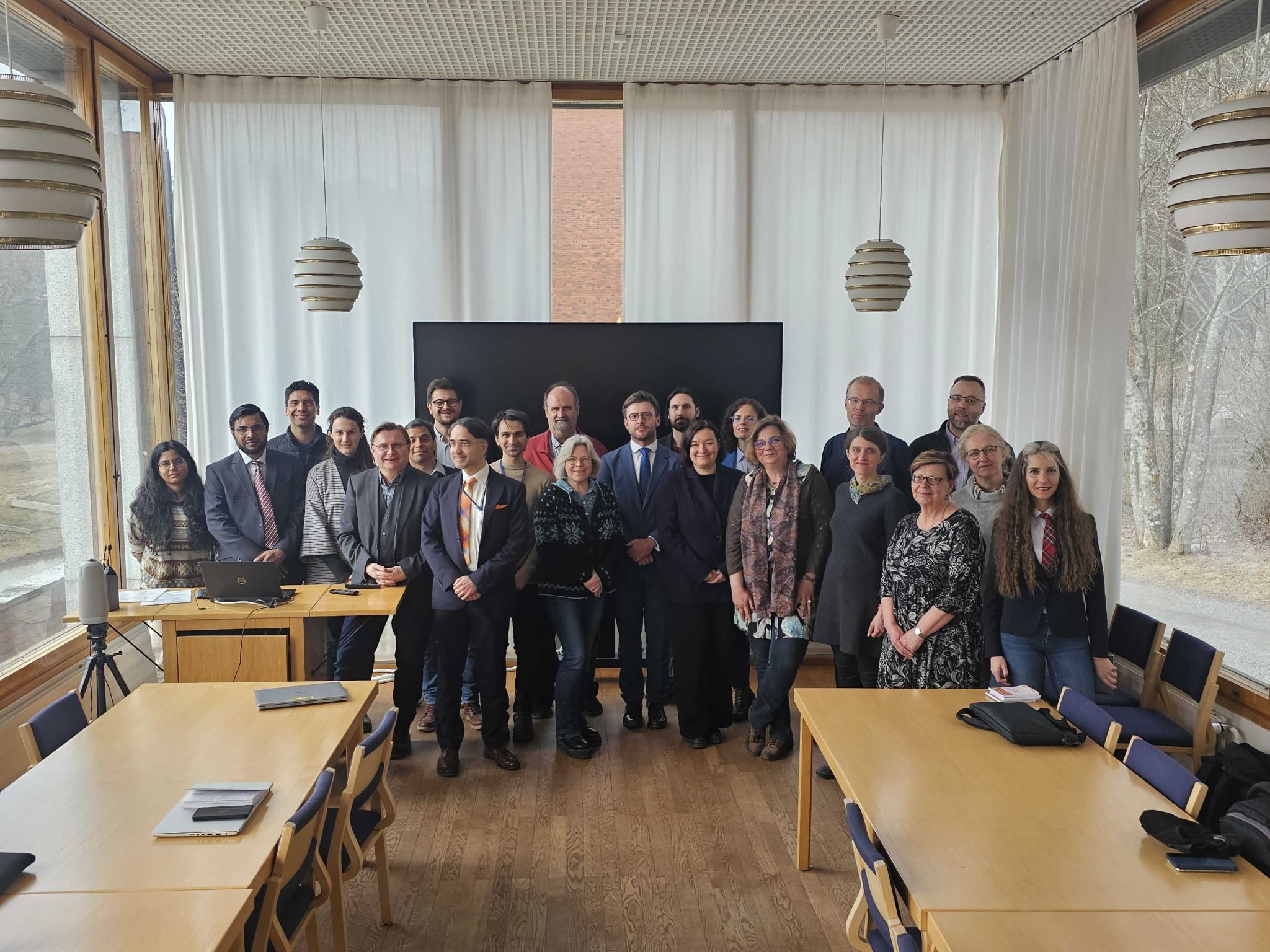
Image: Highlights of RSU’s role in the DeCrises project: insights from Work Package 1 lead. Credit: Pensoft.
Highlights of RSU’s role in the DeCrises project: insights from Work Package 1 lead
Riga Stradiņš University (RSU) has recently published an interview with Vineta Kleinberga, highlighting the university’s involvement in the DeCrises project. As leaders of Work Package 1 (WP1), RSU, in collaboration with the University of Greifswald in Germany, will identify gaps in the theoretical framework of EU multilevel governance and lay the conceptual foundations for the project.
At the same time, RSU is carrying out a case study in Riga. Drawing on the experience of the Riga Neighbourhood Alliance (RNA), WP1 will develop recommendations to strengthen multilevel governance systems, inspired by Riga’s united neighbourhoods, which work collectively to promote sustainable development and improve residents’ quality of life.
You can read more about all four DeCrises case studies in Latvia, Finland, Norway and Poland here: https://decrises.eu/case-studies. These comparative studies provide valuable insights into different national experiences.
The RSU research team includes Vineta Kleinberga, Kārlis Bukovskis and Dina Bite, as well as doctoral students and lecturers Kristīne Blumfelde-Rutka and Inguna Potetinova. In the interview Kleinberga emphasises that DeCrises has a dual role: not only to analyse governance processes and provide evidence-based recommendations, but also to empower society to play an active role in real change. The project’s overarching aim is to explore how governance can become more inclusive and equitable, granting public and local communities a stronger role as both innovators and those most directly experiencing change.
The article concludes on a hopeful note, expressing the expectation that DeCrises will contribute to creating a fairer and more inclusive system of governance. Read the full article (in Latvian) here: https://www.rsu.lv/aktualitates/no-augsas-uz-leju-vai-no-apkaimes-uz-eiropu-rsu-peta-sabiedribas-iesaisti-lemumu
Follow the DeCrises project on social media for updates on the journey towards dual transition:
LinkedIn, Instagram.
***
RSU loma DeCrises projektā: 1. darba pakas vadītājas ieskats
Rīgas Stradiņa universitāte (RSU) nesen publicējusi interviju ar Vinetu Kleinbergu, kurā izcelta universitātes iesaiste DeCrises projektā. Kā 1. darba pakas (WP1) vadītāji RSU sadarbībā ar Greifsvaldes universitāti Vācijā identificēs teorētiskās pieejas trūkumus ES daudzlīmeņu pārvaldībā un izstrādās projekta konceptuālos pamatus.
Vienlaikus RSU veic gadījuma izpēti Rīgā. Balstoties Rīgas Apkaimju alianses (RAA) pieredzē, WP1 izstrādās ieteikumus daudzlīmeņu pārvaldības sistēmu stiprināšanai, vadoties no Rīgas vienotajām apkaimēm, kas kopīgi strādā, lai veicinātu ilgtspējīgu attīstību un uzlabotu iedzīvotāju dzīves kvalitāti.
Vairāk par visiem četriem DeCrises gadījumu pētījumiem Latvijā, Somijā, Norvēģijā un Polijā varat lasīt šeit: https://decrises.eu/case-studies. Šie salīdzinošie pētījumi sniedz vērtīgu ieskatu dažādu valstu nacionālajā pieredzē.
RSU pētniecības komandā darbojas Vineta Kleinberga, Kārlis Bukovskis un Dina Bite, kā arī doktorantes un lektori Kristīne Blumfelde-Rutka un Inguna Potetinova. Intervijā Kleinberga uzsver, ka DeCrises piemīt divējāda loma: ne tikai analizēt pārvaldības procesus un sniegt uz pierādījumiem balstītus ieteikumus, bet arī stiprināt sabiedrības spēju aktīvi iesaistīties reālās pārmaiņās. Projekta galvenais mērķis ir pētīt, kā pārvaldība var kļūt iekļaujošāka un taisnīgāka, piešķirot sabiedrībai un vietējām kopienām spēcīgāku lomu gan kā inovatoriem, gan kā tiem, kas visciešāk izjūt pārmaiņas.
Raksts noslēdzas ar cerīgu vēstījumu – DeCrises palīdzēs veidot taisnīgāku un iekļaujošāku pārvaldības sistēmu. Pilnu rakstu latviešu valodā lasiet šeit: https://www.rsu.lv/aktualitates/no-augsas-uz-leju-vai-no-apkaimes-uz-eiropu-rsu-peta-sabiedribas-iesaisti-lemumu.
Sekojiet DeCrises projektam sociālajos medijos, lai uzzinātu aktualitātes par virzību uz dubulto pāreju: LinkedIn, Instagram.



